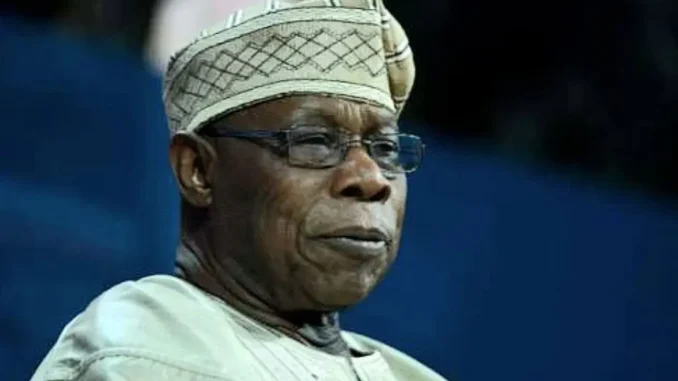
By Divine Sam
Former President Olusegun Obasanjo’s recent call for the dismissal of the Chairman of the Independent National Electoral Commission (INEC), Mahmood Yakubu, and other officials has reignited the debate over Nigeria’s electoral integrity. Speaking at the Chinua Achebe Leadership Forum at Yale University, Obasanjo emphasized the need for thorough vetting of INEC officials to ensure non-partisan, transparent leadership that would restore trust in the electoral system. He criticized INEC’s failure to fully implement its Bimodal Voter Accreditation System (BVAS) and Election Result Viewing Portal (IReV) during the 2023 elections, leading to widespread irregularities.
This criticism has drawn a sharp response from the presidency, with Bayo Onanuga, Special Adviser to President Bola Tinubu, accusing Obasanjo of hypocrisy due to his own administration’s alleged role in organizing a flawed election in the past. Obasanjo’s comments echo the sentiments of opposition leaders like Atiku Abubakar and Peter Obi, who challenged the 2023 election results, citing INEC’s non-compliance with the electoral act, particularly in deploying the necessary technology for voter accreditation and result transmission.
The controversy surrounding INEC’s handling of recent elections, including the governorship elections in Kogi, Edo, and Imo states, has fueled calls for radical electoral reforms. Sam Amadi, Director of the Abuja School of Social and Political Thoughts, has suggested that anyone aspiring to become president in 2027 must prioritize the disbanding of INEC, citing manipulation of results and lack of accountability as major concerns. Public figures such as Nduka Odo and Onyebuchi Igboke also criticized INEC for its failures, particularly the unimplemented promise of real-time result transmission.
The ongoing debate reflects widespread dissatisfaction with INEC’s performance and the need for substantial electoral reforms to ensure credibility, transparency, and fairness in Nigeria’s electoral processes.